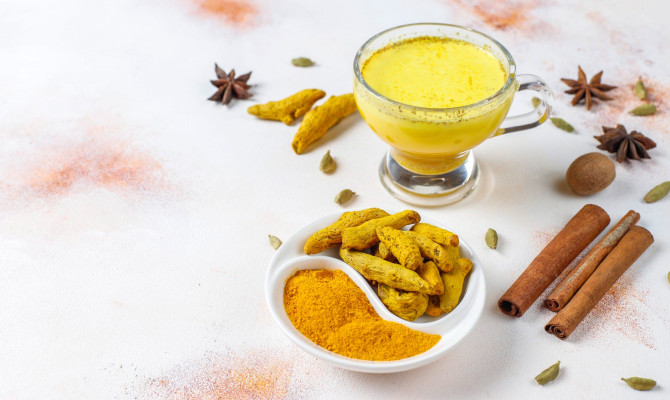Ashwagandha : A Vital Herb

- Ashwagandha
- 14 Aug 2023
Overview
What is Ashwagandha ?
Ashwagandha (Withania somnifera) is a vital herb in Ayurveda, India’s traditional system of medicine, and is utilized for a variety of health benefits. It belongs to the Solanaceae family. Indian Winter Cherry and Indian Ginseng are additional names for it. It is a low-growing evergreen herb, native to India and Southeast Asia.
According to the description, it is a rasayana, a herbal or metallic mixture that encourages a youthful state of bodily and mental health and increases happiness. Commonly sold as a churna, or finely ground powder that can be combined with ghee (clarified butter), water, or honey, Ashwagandha is a well-known herbal remedy. 1What is Ashwagandha| Researched based study from Nlm.nih.gov

Benefits

Benefits of ashwagandha
Ashwagandha is thought to be advantageous for everyone, including youngsters and senior citizens. Fresh extracts provide the following benefits:
- General well-being – As a general tonic, it is used to boost energy, reduce exhaustion, and fight the effects of aging. 2Benefits of Ashwagandha | Researched based study from Psu.edu
- Weight gain – It is given with milk to children who are malnourished or bony.
- Enhances immunity – By boosting cell-mediated immunity, ashwagandha strengthens the body’s defenses against disease.
- Neurological benefits – used to treat epilepsy and treat any stage of Alzheimer’s, Parkinson’s, Huntington’s, and other neurodegenerative illnesses. 3Benefits of Ashwagandha| Researched based study from Phcogrev.com In the long-term use of Ashwagandha, even brain strokes resulting in paralysis are believed to improve.
- Cognitive benefits – ashwagandha has an antioxidant effect on the brain and may improve immediate and general memory, attention, and reaction time.
- Cardiovascular benefits – eases chest pain, decreases high cholesterol, lowers high blood pressure, and prevents heart diseases.
- Cardiorespiratory endurance – Increasing stamina (physical endurance), increases VO2 max levels, which improves muscular strength, better recovery after exercise, etc. in athletes. 2Benefits of Ashwagandha | Researched based study from Nlm.nih.gov
- Psychological advantages – used as a mood stabilizer in patients suffering from anxiety, sadness, sleeplessness, hysteria, memory loss, nervous breakdown, and other conditions.
- Anti-stress property – increases a person’s capacity to withstand stress and, as a result, raises self-reported life satisfaction. 5Benefits of Ashwagandha | Researched based study from Nlm.nih.gov
- Stress-induced diseases – helps treat numerous stress-related illnesses, including cancer, diabetes, hypertension, arthritis, premature aging, arteriosclerosis, stress-induced hepatotoxicity, stress-induced stomach ulcer, etc. 6Benefits of Ashwagandha | Researched based study from Nlm.nih.gov
- Pain relieving property – calms the nervous system’s pain response and can be used locally on carbuncles, ulcers, and painful swellings.
- Anti-pyretic effect – The bitter leaves are suggested for fever.
- Anti-inflammatory property – used to treat inflammations in the body. When roots are mashed with water, a paste is created that is used to treat joint inflammation called Rheumatoid arthritis. 7Benefits of Ashwagandha | Researched based study from Nlm.nih.gov
- Anti-oxidant property – aid in protecting cells from the harm caused by free radicals.
- Anti-venom property – The root is used when combined with other medications for scorpion and snake venom stings.
- Reproductive system – It helps balance hormones in females. It is also beneficial for male fertility and may assist to raise testosterone levels and help in erectile dysfunction. Additionally, it improves male sperm quality, quantity, and motility. 8Benefits of Ashwagandha| Researched based study from Nlm.nih.gov
- Issues with the digestive tract – can prevent or treat constipation, intestinal worms, piles, etc.
- Skin conditions – may help with ulcers, boils, etc.
- Cancer – may be used to halt the growth of cancerous cells in some cases.
Side effects
Side effects of ashwagandha
Small to medium doses of ashwagandha are typically tolerated by most people. However, insufficient long-term research has been conducted to adequately investigate any potential negative effects.
- Digestive disturbance — when consumed in excessive doses, this irritation to the gut can result in vomiting, nausea, and diarrhea.
- Infrequent liver issues – After stopping the herbal medicine, the liver damage usually heals within one to three months. 9Side effects of ashwagandha | Researched based study from Nlm.nih.gov
Precautions
What precautions one should take ?
The following general guidelines should be kept in mind while taking ashwagandha:
- The FDA’s (Food and Drug Administration) rules do not apply to manufacturers.
- Consumers should always do a little research on the drug’s manufacturer before purchasing any herbal medications.
- When taken for up to three months, ashwagandha may be safe. But its long-term safety is unknown.
- All of the ashwagandha’s adverse effects are unknown because it has not been thoroughly researched. Consequently, it is recommended to see a doctor before using ashwagandha.
In the instances listed below, ashwagandha should be avoided:
- Stop usage of ashwagandha two weeks before any surgical procedure as it may have a calming effect on the central nervous system. Healthcare professionals are concerned that anesthesia and other drugs used before and after surgery may intensify this effect.
- Usage should be stopped before a thyroid test since it can have an impact on the test’s results.
- Pregnant women should not use ashwagandha because it increases their risk of miscarriage and additionally, it should not be used by nursing mothers also.
- If a person has an auto-immune condition, such as multiple sclerosis or systemic lupus erythematosus, it is best to avoid ashwagandha as it may exacerbate the condition.
- This herbal medication should not be used by people with hormone-sensitive prostate cancer since it may raise the body’s testosterone levels.
Interactions
Interaction of ashwagandha with medicines
When taking the following medications, exercise caution as it is understood to interact with medicines such as:
- Thyroid medication – Thyroid hormone overproduction may cause increased effects and negative effects when using the herb along with thyroid hormone supplements as ashwagandha extract may also enhance the body’s production of thyroid hormone.
- Sedatives – Combining ashwagandha with sedative drugs may result in difficulty breathing and/or excessive tiredness as the herb may also make a person sleepy and cause breathing to slow down.
- Blood pressure medications – the herb is known to reduce blood pressure. When combined with blood pressure medications, it may cause very low blood pressure. Monitoring blood pressure is important while using ashwagandha.
- Immunosuppressants – Some drugs, such as those prescribed after a transplant, are meant to reduce the immune system’s function. Ashwagandha may lessen the effects of these drugs when taken concurrently, as they are known to enhance the body’s immunity.
- Drugs for diabetes – Combining ashwagandha with diabetes medicines may result in dangerously low blood sugar levels as it is also known to reduce blood sugar levels.
Takeaway
Key Takeaways
It is a traditional medicine with numerous potential health advantages like controlling blood pressure, stress, anxiety, and blood sugar level, improving sleep, immunity and cognitive functions, etc. For individuals who favor herbal medications, ashwagandha appears to be a good option for several factors. Many of the studies conducted to date have been small, utilized animal research, or had poor design. Because of this, scientists are unable to declare for sure whether the therapy is helpful.
Although its long-term effects are unknown, ashwagandha is a supplement that is safe for the majority of people. Before including ashwagandha in an individual’s regimen, one should see a doctor because it is not suitable for everyone. 10Takeaway | Researched based study from Sciencedirect.com
Any feedback on this article?
 This Articles content was accurate
This Articles content was accurate Very Informative Article
Very Informative Article I have a question or a comment
I have a question or a comment
 This article contains inaccurate content
This article contains inaccurate content This article was not helpful
This article was not helpful I have a question or a comment
I have a question or a comment
We appreciate your helpful feedback!
Checkout our social pages
References
-
National Library of Medicine
An Overview on Ashwagandha: A Rasayana (Rejuvenator) of Ayurveda
-
Pennsylvania State University
Scientific Basis for the Therapeutic Use of Withania somnifera (Ashwagandha): A Review | Benefits
-
Pharmacognosy Reviews
Withania somnifera (Ashwagandha): A Review | Benefits
-
National Library of Medicine
Efficacy of Ashwagandha (Withania somnifera [L.] Dunal) in improving cardiorespiratory endurance in healthy athletic adults
-
National Library of Medicine
A Prospective, Randomized Double-Blind, Placebo-Controlled Study of Safety and Efficacy of a High-Concentration Full-Spectrum Extract of Ashwagandha Root in Reducing Stress and Anxiety in Adults
-
National Library of Medicine
An investigation into the stress-relieving and pharmacological actions of an ashwagandha (Withania somnifera) extract
-
National Library of Medicine
Efficacy & safety evaluation of Ayurvedic treatment (Ashwagandha powder & Sidh Makardhwaj) in rheumatoid arthritis patients: a pilot prospective study
-
National Library of Medicine
Effects of Withania somnifera on Reproductive System: A Systematic Review of the Available Evidence | Benefits
-
National Library of Medicine
Ashwagandha | Side effects
-
Science Direct
Safety of Ashwagandha Root Extract: A Randomized, Placebo-Controlled, study in Healthy Volunteers | Takeaway





































